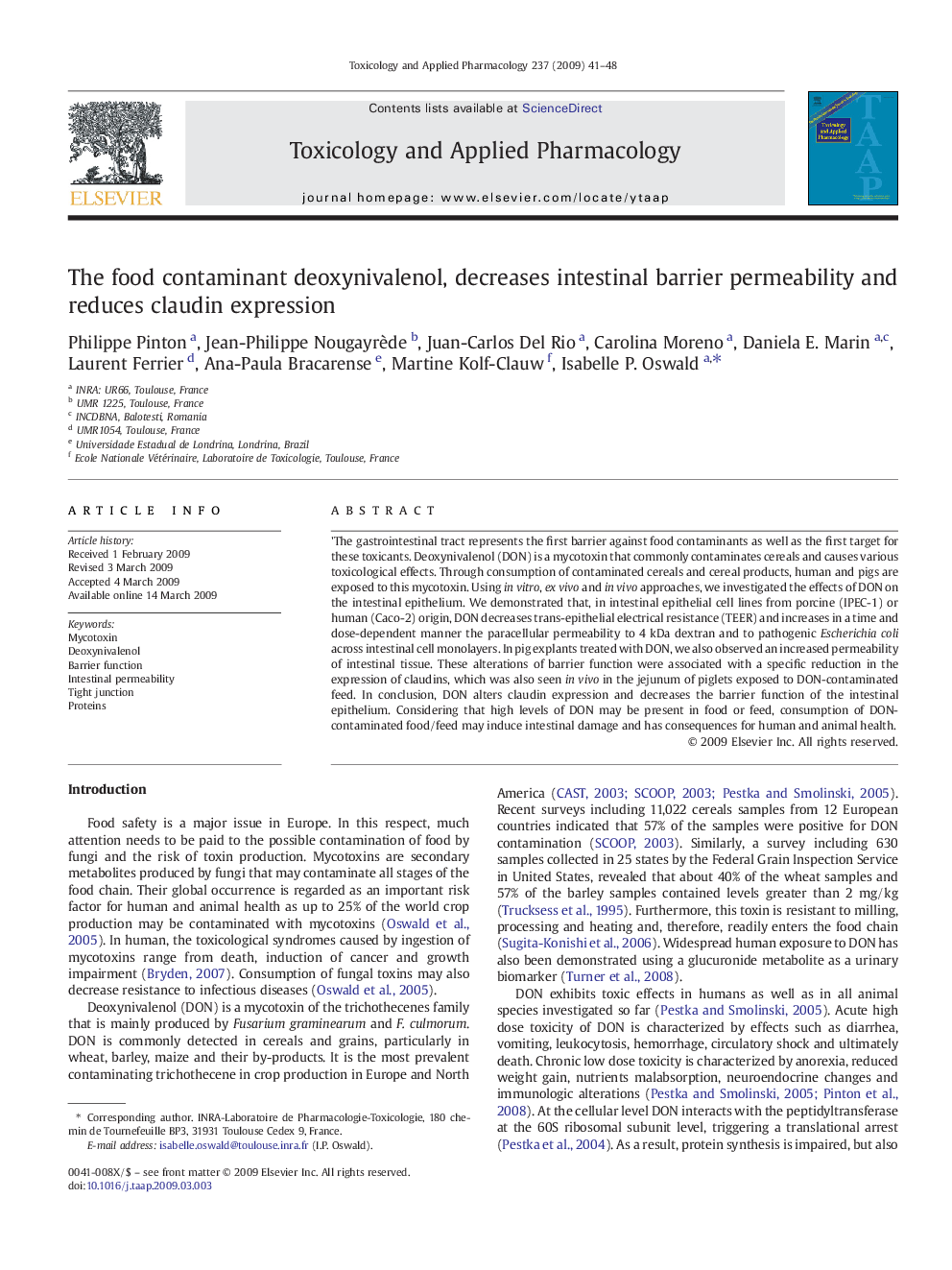| کد مقاله | کد نشریه | سال انتشار | مقاله انگلیسی | نسخه تمام متن |
|---|---|---|---|---|
| 5846964 | 1128582 | 2009 | 8 صفحه PDF | دانلود رایگان |

'The gastrointestinal tract represents the first barrier against food contaminants as well as the first target for these toxicants. Deoxynivalenol (DON) is a mycotoxin that commonly contaminates cereals and causes various toxicological effects. Through consumption of contaminated cereals and cereal products, human and pigs are exposed to this mycotoxin. Using in vitro, ex vivo and in vivo approaches, we investigated the effects of DON on the intestinal epithelium. We demonstrated that, in intestinal epithelial cell lines from porcine (IPEC-1) or human (Caco-2) origin, DON decreases trans-epithelial electrical resistance (TEER) and increases in a time and dose-dependent manner the paracellular permeability to 4Â kDa dextran and to pathogenic Escherichia coli across intestinal cell monolayers. In pig explants treated with DON, we also observed an increased permeability of intestinal tissue. These alterations of barrier function were associated with a specific reduction in the expression of claudins, which was also seen in vivo in the jejunum of piglets exposed to DON-contaminated feed. In conclusion, DON alters claudin expression and decreases the barrier function of the intestinal epithelium. Considering that high levels of DON may be present in food or feed, consumption of DON-contaminated food/feed may induce intestinal damage and has consequences for human and animal health.
Journal: Toxicology and Applied Pharmacology - Volume 237, Issue 1, 15 May 2009, Pages 41-48